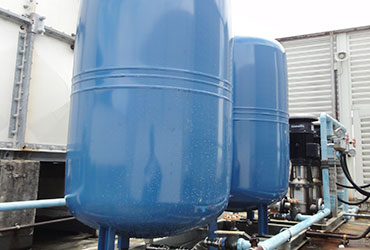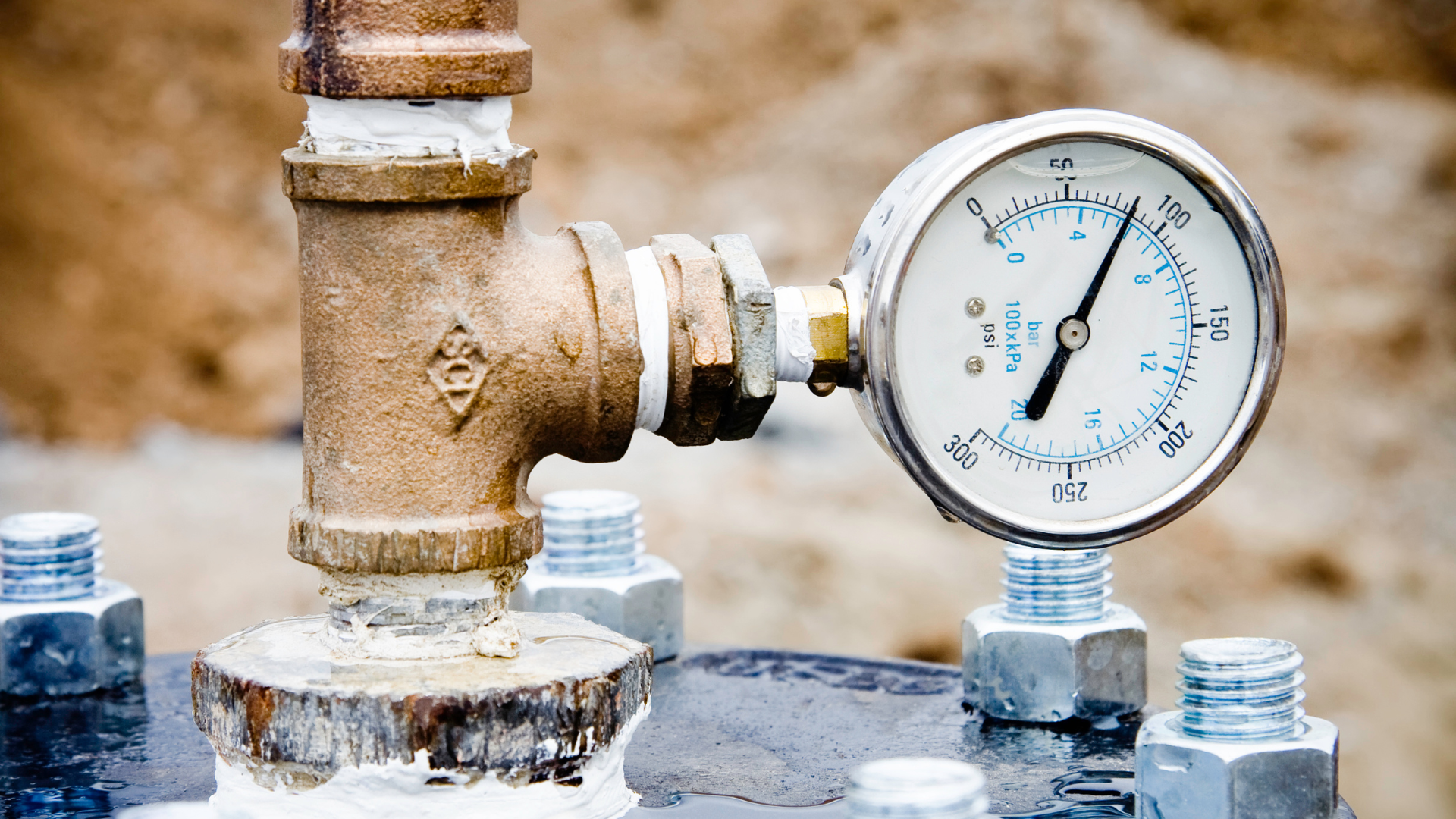Just how do you really feel about 9 Reasons for Low Water Pressure in Your House?

Low water pressure in your home can be a frustrating issue, affecting whatever from showering to washing meals. If you're experiencing weak water flow, there are a number of possible causes and solutions to check out. In this guide, we'll review typical reasons for low tide stress and functional actions to attend to the issue properly.
Intro to Low Water Stress
Low tide stress occurs when the flow of water from your taps, showers, and various other fixtures is weaker than usual. This can make day-to-day jobs much more tough and much less efficient. Recognizing the root causes of low tide stress is essential to discovering the appropriate service.
Usual Root Causes Of Low Water Stress
Pipe Obstructions
In time, pipelines can become clogged with mineral deposits, debris, or particles, restricting the circulation of water. This is an usual problem in older homes with galvanized steel pipes.
Deterioration
Rust within pipes can lead to leaks and reduced water pressure. Corrosion buildup can restrict water circulation, particularly in maturing plumbing systems.
Faulty Stress Regulatory Authorities
Pressure regulators are responsible for preserving constant water pressure in your home. If they malfunction, it can lead to low tide pressure or unequal circulation throughout the house.
Municipal Supply Of Water Issues
Often, the problem exists outside your home. Local water concerns, such as main line leaks or upkeep work, can briefly lower water pressure in your area.
Just How to Identify Low Water Pressure
Checking Taps and Fixtures
Begin by examining the water pressure at various taps and components throughout your home. If the concern is isolated to certain locations, it might indicate localized troubles.
Inspecting Pipes
Inspect visible pipes for indications of leakages, deterioration, or blockages. Take notice of any kind of unusual audios, such as banging or rattling pipelines, which can indicate issues within the plumbing system.
Consulting with a Plumber
If you're unable to determine the reason for low tide stress, think about hiring a professional plumber to perform a complete examination. They can determine underlying issues and recommend ideal services.
Do It Yourself Solutions to Take Care Of Low Water Pressure
Cleaning Aerators and Showerheads
Natural resources can collect in aerators and showerheads, decreasing water circulation. Remove and cleanse these components consistently to enhance water stress.
Flushing Water Heater
Sediment accumulation in the hot water heater can limit flow and reduce effectiveness. Flushing the storage tank regularly assists get rid of sediment and preserve optimal efficiency.
Inspecting Stress Regulatory Authority
Make certain that the pressure regulator is operating appropriately. Readjusting or changing the regulatory authority can assist recover correct water stress throughout your home.
Clearing Up Clogs in Piping
For small clogs, try utilizing a plumbing serpent or chemical drain cleaner to clear blockages in pipelines. Beware when utilizing chemicals and adhere to safety standards.
When to Call a Professional Plumber
If DIY efforts fall short to fix the issue or if you think substantial plumbing troubles, it's ideal to look for aid from a licensed plumber. They have the experience and tools to resolve intricate issues safely and effectively.
Safety Nets to Keep Water Stress
Normal Maintenance
Set up routine maintenance for your plumbing system to stop issues such as deterioration, leaks, and obstructions. Addressing small problems early can assist avoid more substantial fixings in the future.
Mounting a Stress Booster
Think about mounting a pressure booster pump to boost water stress in areas with consistently low circulation. This can be especially useful for multi-story homes or residential or commercial properties with high-demand fixtures.
Surveillance Water Use
Be mindful of water usage practices and avoid overtaxing the plumbing system. Easy changes, such as shocking showers and washing tons, can assist maintain ample water stress.
Final thought
Handling low tide pressure can be irritating, however identifying the underlying causes and implementing ideal remedies can restore ideal circulation throughout your home. Whether it's cleaning aerators, evaluating pipelines, or speaking with a plumber, taking positive steps can guarantee a steady supply of water for your day-to-day needs.
HOW TO FIX LOW WATER PRESSURE IN YOUR HOUSE (EXPERT GUIDE)
The morning shower lacking any real pressure? Bathtub taking hours to fill? Or maybe you’re dissatisfied with the inadequate performance from your combi boiler?
Then you, like millions of others across the UK, might be experiencing low water pressure.
Fortunately, the good news is that you don’t have to continue living this way. The cause of low water pressure in the home is often quite simple, and you may not even require a plumber to fix the problem.
What causes low water pressure in the house?
If you are experiencing issues with water pressure throughout your home, then you may have one of the problems outlined below.
Most of these problems can be fixed quite easily, but for others, you may need to contact a plumber.
Obstructed Shutoff Valve
If you’ve just bought a new home or recently had building work conducted on your property, there is a chance that your water valves were not fully opened.
If the water valve is partially closed, then you may be restricting the amount of water entering your home. To fix this, simply ensure the valve is fully open.
If the valve appears fully open but you are still encountering reduced water pressure, then the valve may be broken. If this is the case, do not under any circumstances try to fix it without proper training.
Often found under your kitchen sink, a water valve will usually look like a bright yellow handle.
Again, if you believe the water valve is broken, contact a plumber immediately.
Leaks in Your Water Pipes
Leaks are the worst-case scenario when it comes to low water pressure.
If the water pipes are damaged, then this will cause low water pressure, as not all the water will make it to your taps.
After you’ve checked to see if the valve is fully open, you can conduct a leak check of your home. Now, this may seem scary, but it is actually quite simple.
Clogged Water Pipes
Clogged water pipes are one of the most common causes of low water pressure.
These clogs usually build-up when your home is supplied water via iron pipes. Iron is particularly vulnerable to rusting which can then break off and cause an obstruction within your system. You also face the problem of things like dirt, gravel or sand entering creating mineral deposits which further block water flowing from the mains water supply.
Unfortunately, if you suspect that clogged pipes may be restricting your water supply, then you will need to contact a plumber.
In this situation, you will either need to have your pipes removed and cleaned or in more severe cases, you could require a new set of water pipes.
Designer Taps
Designer taps look fantastic, but are they built to be efficient in your plumbing system? Modern taps are built for modern homes and they often have lower flow rates that are specifically designed for use within high-pressure systems.
Install a Water Pressure Booster Pump
If the issue is simply that the mains water pressure supply is too low, the simplest fix is to invest in a booster pump. Found in homes of all shapes and sizes, booster pumps are a relatively cheap option to add extra pressure to your home.
Designed to increase water pressure by passing water into the pump from your mains supply and then ejecting it into your home water system at a higher pressure, a booster pump is a truly simple and effective solution to increasing water pressure.
https://www.anchorpumps.com/blog/the-plumbers-guide-to-fixing-low-water-pressure/

HOW TO FIX LOW WATER PRESSURE IN YOUR HOUSE (EXPERT GUIDE)
The morning shower lacking any real pressure? Bathtub taking hours to fill? Or maybe you’re dissatisfied with the inadequate performance from your combi boiler?
Then you, like millions of others across the UK, might be experiencing low water pressure.
Fortunately, the good news is that you don’t have to continue living this way. The cause of low water pressure in the home is often quite simple, and you may not even require a plumber to fix the problem.
What causes low water pressure in the house?
If you are experiencing issues with water pressure throughout your home, then you may have one of the problems outlined below.
Most of these problems can be fixed quite easily, but for others, you may need to contact a plumber.
Obstructed Shutoff Valve
If you’ve just bought a new home or recently had building work conducted on your property, there is a chance that your water valves were not fully opened.
If the water valve is partially closed, then you may be restricting the amount of water entering your home. To fix this, simply ensure the valve is fully open.
If the valve appears fully open but you are still encountering reduced water pressure, then the valve may be broken. If this is the case, do not under any circumstances try to fix it without proper training.
Often found under your kitchen sink, a water valve will usually look like a bright yellow handle.
Again, if you believe the water valve is broken, contact a plumber immediately.
Leaks in Your Water Pipes
Leaks are the worst-case scenario when it comes to low water pressure.
If the water pipes are damaged, then this will cause low water pressure, as not all the water will make it to your taps.
After you’ve checked to see if the valve is fully open, you can conduct a leak check of your home. Now, this may seem scary, but it is actually quite simple.
Clogged Water Pipes
Clogged water pipes are one of the most common causes of low water pressure.
These clogs usually build-up when your home is supplied water via iron pipes. Iron is particularly vulnerable to rusting which can then break off and cause an obstruction within your system. You also face the problem of things like dirt, gravel or sand entering creating mineral deposits which further block water flowing from the mains water supply.
Unfortunately, if you suspect that clogged pipes may be restricting your water supply, then you will need to contact a plumber.
In this situation, you will either need to have your pipes removed and cleaned or in more severe cases, you could require a new set of water pipes.
Designer Taps
Designer taps look fantastic, but are they built to be efficient in your plumbing system? Modern taps are built for modern homes and they often have lower flow rates that are specifically designed for use within high-pressure systems.
Install a Water Pressure Booster Pump
If the issue is simply that the mains water pressure supply is too low, the simplest fix is to invest in a booster pump. Found in homes of all shapes and sizes, booster pumps are a relatively cheap option to add extra pressure to your home.
Designed to increase water pressure by passing water into the pump from your mains supply and then ejecting it into your home water system at a higher pressure, a booster pump is a truly simple and effective solution to increasing water pressure.
https://www.anchorpumps.com/blog/the-plumbers-guide-to-fixing-low-water-pressure/
I ran across that piece on 4 Ways to Troubleshoot Low Water Pressure when doing a search on the internet. Be sure to pause to distribute this entry if you appreciated it. I love your readership.
Click Here